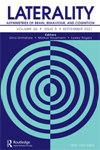Toward an Alaskan Critical Regionalist Pedagogy
IF 0.9
4区 心理学
Q4 PSYCHOLOGY, EXPERIMENTAL
引用次数: 0
Abstract
In an era when urban space is theorized as an educative science enhancing productivity, business, and management, we witness the emergence of teaching as a dominant productive force for the first time in the history of capital. Given the decisive role of knowledge production in the development of globalized urbanization it becomes vital to identify critical pedagogies that not only engage the production of space but grasp the production of space as pedagogical. To do so, I attend to interventions into regionalist studies and the global city to argue for visual spatial tactics as a tool for a critical regionalist pedagogy capable of linking material, affective, and discursive practices with a placed-based approach to globalized urbanization. Students design a collaborative website documenting the spatial history of cruise ship tourism in Alaska as an argument over the right to the city. Identifying this living process—framing the cruise industry as a constitutive system fusing discourse, space, and identity to restructure history, nature, and region—becomes a means of questioning and revising otherwise generalized theories often brought to bear on tourist landscapes, on Alaska, and on critical pedagogy itself. This case study shows the emergence of the cruise ship city as inseparable from the onset of globalized urbanization and how it, in turn, provides edifying material to mobilize a critical regionalist pedagogy within contemporary forms of educative landscapes.阿拉斯加批判地域主义教学法之探讨
在这个城市空间被理论化为一门提高生产力、商业和管理的教育科学的时代,我们见证了教学在资本历史上第一次成为主导生产力。鉴于知识生产在全球化城市化发展中的决定性作用,确定不仅参与空间生产而且将空间生产作为教学手段的批判性教学法变得至关重要。为此,我关注对区域主义研究和全球城市的干预,以论证视觉空间策略作为一种批判性区域主义教育学的工具,能够将材料、情感和话语实践与基于地点的全球化城市化方法联系起来。学生们设计了一个合作网站,记录阿拉斯加游轮旅游的空间历史,作为对城市权利的争论。识别这一活生生的过程——将邮轮行业构建为一个融合话语、空间和身份的构成系统,以重组历史、自然和地区——成为质疑和修订通常用于旅游景观、阿拉斯加和批判性教育学本身的其他广义理论的一种手段。本案例研究展示了邮轮城市的出现与全球化城市化的开始密不可分,以及它如何反过来为在当代形式的教育景观中动员关键的区域主义教学法提供了有益的材料。
本文章由计算机程序翻译,如有差异,请以英文原文为准。
求助全文
约1分钟内获得全文
求助全文
来源期刊

Laterality
Multiple-
CiteScore
3.60
自引率
7.10%
发文量
26
期刊介绍:
Laterality: Asymmetries of Body, Brain and Cognition publishes high quality research on all aspects of lateralisation in humans and non-human species. Laterality"s principal interest is in the psychological, behavioural and neurological correlates of lateralisation. The editors will also consider accessible papers from any discipline which can illuminate the general problems of the evolution of biological and neural asymmetry, papers on the cultural, linguistic, artistic and social consequences of lateral asymmetry, and papers on its historical origins and development. The interests of workers in laterality are typically broad.
 求助内容:
求助内容: 应助结果提醒方式:
应助结果提醒方式:


